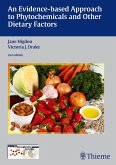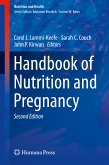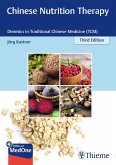Nutrition Therapy for Urolithiasis provides evidence based recommendations, established by a comprehensive, state of the art review of the available literature to help clinicians with nutritional counseling for dietary stone prevention. The text is edited by a Urologist and a Registered Dietician and individual chapters are written by experts in the three fields of Urology, Nutrition, and Nephrology. The book not only includes chapters that comprehensively cover the topic, but also includes practical appendices to guide the reader on: individual nutrient recommendations, examples of balanced dietary patterns (Mediterranean, DASH, U.S. Dietary Guidelines, Weight Watchers, diabetes meal planning, etc.), tables of foods rich in food that affect stone risk (calcium, phytate, sodium, etc); diet assessment tools; and guides to over-the-counter supplements that may be used in nutrition therapy for stone prevention: (calcium, probiotics, fish oil etc). This book provides a new resource to assist in the prevention of Urolithiasis and will be of great value to professionals in the fields of Urology, Nephrology, and Nutrition.
Dieser Download kann aus rechtlichen Gründen nur mit Rechnungsadresse in A, B, BG, CY, CZ, D, DK, EW, E, FIN, F, GR, HR, H, IRL, I, LT, L, LR, M, NL, PL, P, R, S, SLO, SK ausgeliefert werden.









